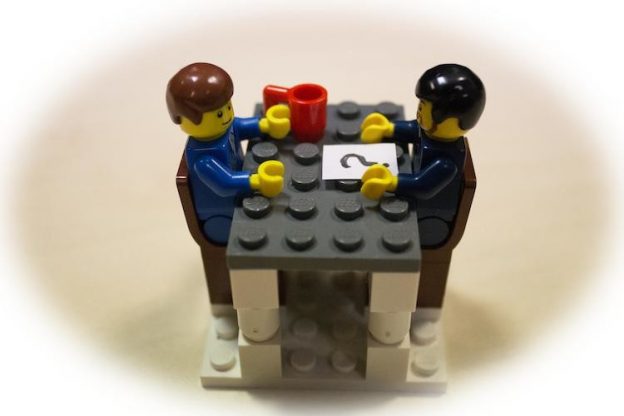When it comes to job interviews I’ve had my share throughout the years being on both sides of the table. I’ve conducted my first mock interview years back when my employer at the time sent me on a City & Guilds Recruitment and Interviewing Techniques training to help HR with the recruitment process. The training did cover important aspects of job interviews, such as open and closed questions, how to observe the legislation when asking interview questions and most importantly, how to extract the information needed from the candidate. The candidate’s skills, abilities and suitability for the job are like a big covered picture and each question aims to reveal a little bit of the picture so that at the end of the interview, the interviewer can make a decision on the suitability of the candidate for the role.
From my experience being on both sides of the table, I believe that filling a job is like buying a house, such that it’s not just the house that matters, but also the neighbourhood and the surrounding area. Whoever is buying a house will double check the area and the neighbourhood quite well because what makes a home is not just the house, but where it exists, the same applies to jobs. What makes a job is not just the job description or responsibilities, but also the interactions and the working environment surrounding the job.
From the candidate’s point of view, no matter how attractive the job description is, they don’t know if the work environment, interactions, culture and atmosphere is enjoyable or not until they actually start the job. For all they know the workplace could be suffering from things like lack of professionalism, blame culture, internal politics or bad working practices. From the employer’s point of view, no matter how good the candidate is, the employer doesn’t know if the candidate is going to be a good fit for their culture and work environment or not until they actually start. The candidate could turn out to be not a good team player or unable to work under pressure to specific deadlines. To mitigate this, the contract usually contains a probation period that has a shorter notice period on both sides.
Using my “buying a house” analogy, this is like buying a house without checking out the surrounding area and then living in it for a couple of months to see what the area is like! and if it turns out not right at the end, you sell and look for another house. Well, people don’t usually do that because buying a house is not an easy process, the least to say, it is a very stressful and costly process. Jobs are similar, the candidate has gone through the hassle of updating their CV, getting phone calls whilst at work, having to book time off to go for interviews and trying as much as possible to keep their career move a secret from their current employer. The employer on the other hand, has gone through the hassle of writing a job description, freeing up the resources to conduct the interviews and going through the pain of the recruitment process.
In my opinion, it should be a core interview question to ask the candidate to describe their ideal job by elaborating on the following two areas:
- Duties and responsibilities (likes and dislikes).
- Expected interactions, work environment and culture (likes and dislikes).
I believe this missing question will partially address any mismatch of expectations regarding the job interactions, work environment and culture at the interview stage. But, such question is only going to work if the employer is honest throughout the interview. For example it’s not good claiming that the company follows an Agile process, when it is actually following a mishmash of processes!, the candidate will find out when they start and will be disappointed. In such a case it’s better to say something along the lines of “We are trying to implement Agile and are looking for a fresh pair of eyes like yourself to help us improve”, but no, during the interview many interviewers will make claims about their working practices which are not entirely true.
To make room for such an elaborative question I believe many other less useful questions can be removed from the interview process. Here are examples of such questions:
- Why are you leaving your current job?, the candidate might genuinely be looking for a career change or a job closer to home, but the reason they are leaving might be related to something negative about their current employer. As candidates are told not to be negative of their current employer, it’s guaranteed that most candidates are unlikely to tell the truth when answering this question.
- Where do you see yourself in X years?, if the purpose of this question is to gauge the suitability of the candidate in the long term or their career aspiration, it’s likely it won’t serve that purpose most of the times. In X years, if the candidate wants to start their own business, be the CEO of the company or carry on doing the same thing day in and day out, they are not going to say that.
I would love to hear your thoughts regarding this, do you believe that questions related to the interactions, working environment and culture will improve the expectations of both the employer and the candidate? are there any other alternatives? I’ve come across some initiatives where as part of the interview process the candidate is invited to spend part of a day with the team to get a feel of the work environment, do you think such initiatives can help as well?
[Thanks to Eliot Kerslake for capturing the LEGO interview with his camera]

